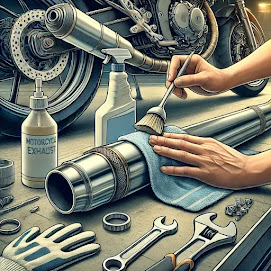Spokes
or Rims for Motorcycles
When comparing spoke wheels and
casting wheels or alloy wheels on a motorcycle, both have their advantages and
disadvantages depending on the rider's goals and needs. Here is a comparison:
Spoke Wheels
Advantages:
Stronger for Off-Road, Spokes are
usually more durable and able to absorb shocks better, making them an ideal
choice for motorcycles used on off-road terrain or rocky roads.
Easy Maintenance, If one of the
spokes is damaged or loose, only need to replace or adjust that part without
having to replace the entire rim.
Flexibility, Spokes have a design
that allows flexibility when crossing uneven terrain, providing more stable
performance when riding in difficult conditions.
Disadvantages:
More Frequent Maintenance, Spokes
require routine maintenance, such as tension checks and readjustments, to stay
in good condition.
Aesthetics, Some riders consider
spokes less modern or less aesthetic when compared to casting rims.
Casting Rims (Alloy Wheels)
Advantages:
Lighter and Stronger, Alloy rims are
lighter, which can improve acceleration and fuel efficiency. They are also
stronger and more resistant to corrosion.
More Modern Design, Alloy rims
provide a more modern and often more stylish look, making the motorbike look
cooler.
Minimal Maintenance, Alloy rims do
not require as much routine maintenance as spokes, just keep them clean and
check for damage.
Disadvantages:
Vulnerable to Impact, Alloy rims
tend to be more susceptible to damage from hard impacts, such as when running
over large holes or rough terrain.
Not Ideal for Off-Road, Due to its
stiffer construction, alloy rims are less suitable for use on off-road or rocky
roads.
If you often ride on off-road or
rough roads, then spokes are a better choice, because they are more resilient
and flexible.
If you ride more often on asphalt
roads or prioritize aesthetics and easy maintenance, then alloy rims are more
suitable for you.
So, the choice between spokes and
rims depends on your riding style and the road conditions you encounter.













0 comments:
Post a Comment